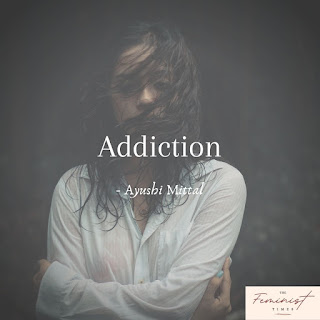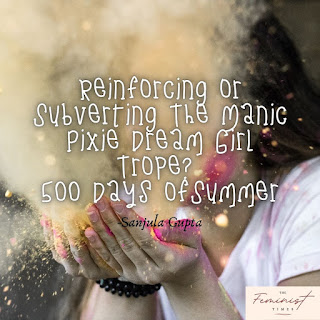The Three W’s for the World: Wit, Wine and Woolf!
Books formed my early feminist perception when I was pursuing my undergrad
7 years ago. It was just another mundane day in the college library; I was
strolling around in search of some essays listed by my professor from “A Room
of One’s Own” by Virginia Woolf. I found only the sixth out of the six essays
from the collection. We were to read “Mrs. Dalloway” in that semester; the
same Mrs. Dalloway who said that “she would buy the flowers herself”.
When I started reading the sixth essay concerning the ‘androgynous mind’ of
writers, I realized that so far in one and a half years of my graduation, I have
read very few books by women- Mary Wollstonecraft, Mary Shelley, Jane
Austen, Charlotte Bronte and now, Virginia Woolf. Women and Fiction have
been missing entirely before the 19th century. Men were writing women,
killing them in their books, took their voice presenting them as mad, hysterical
or naïve who only seek love and marriage in their life. Woolf said, “Any woman
born with a great gift in the sixteenth century would certainly have gone
crazed, shot herself, or ended her days in some lonely cottage outside the
village, half witch, half wizard, feared and mocked at.” Did you just recall the
famous 1617 Finspång Witch Trials? After further reading of the essay, I read
this: “Doubtless Elizabethan literature would have been very different from
what it is if the women’s movement had begun in the sixteenth century and
not in the nineteenth.” and it left me gluttonous for the entire collection for
which I pestered the librarian to find it the same day.
The world knows that Shakespeare is the greatest wit in literature but no
women writer was fairly famous for their wits at that time. Now, I ask you the
question that Woolf asked- “What would have happened if Shakespeare had a
wonderfully gifted sister, called Judith, let us say? ...his extraordinarily gifted
sister, let us suppose, remained at home.” Do you think she would have
survived or do you think she would have disguised herself as one of the
Shakespearean women Viola in “Twelfth Night” ...much like George Eliot?
Fast forward to the 20th century, the arrival of the Modernism and the Jazz
Age, we again see men overshadowing women in fiction. Male writers were
romanticized for drinking wine and smoking while women were still supposed
to be homebound or judged for being, say, Daisy and Myrtle in “The Great
Gatsby”. Fitzgerald’s wit in showing the treatment of women in modern
America was commendable. But again, in the bygone epochs, if a woman
would have considered telling their story, how the world would have
responded, we all are aware. That is exactly why Woolf’s “A Room of One’s
Own” becomes a necessity for the world to understand why “a woman must
have money and a room of her own if she is to write a fiction”. A new slogan
should be welcomed: use your wits, pour a glass of wine and read some Woolf!
-Aayushi, I'm a book reviewer and share my love for books on Instagram:
@_penandpapers. When I'm not reading or photographing books I journal and
write. I also work as a part time Editor for www.bookishsanta.com.



Comments
Post a Comment